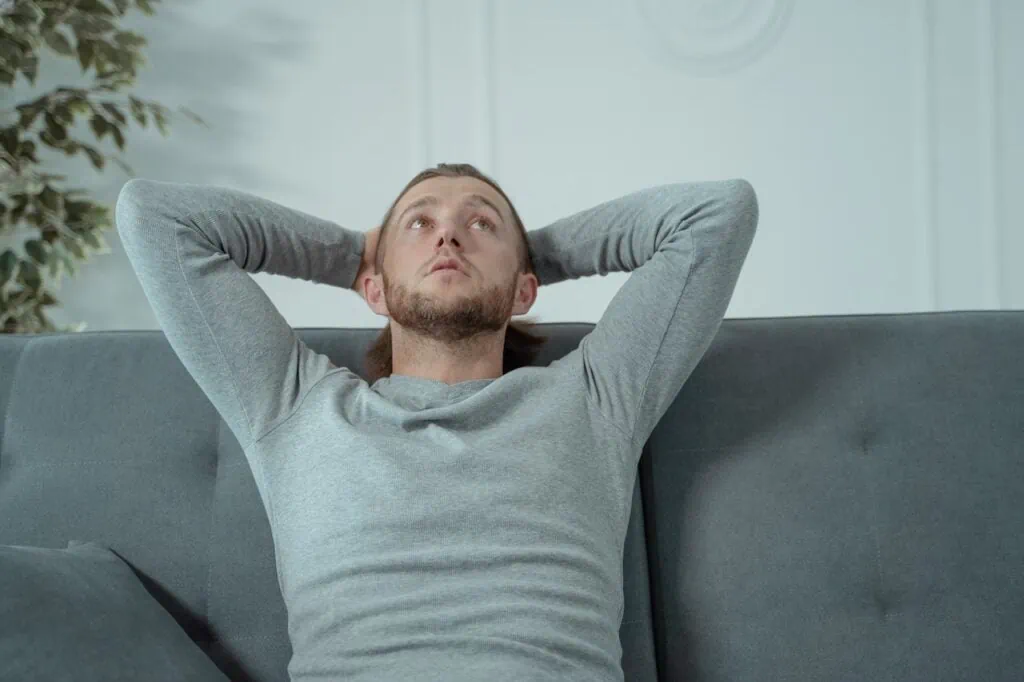
Can Addiction Cause Anxiety?
The relationship between addiction and anxiety is a complex and multifaceted topic. While they are distinct psychological and behavioral conditions, they have a significant connection. Many people with substance use disorders also have mental health disorders, including anxiety disorders. However, some people without a disorder may self-medicate negative emotions due to poor coping skills.
Addiction and the Brain
Addiction is often characterized by the compulsive use of substances such as drugs or alcohol despite adverse consequences. It primarily involves the mesolimbic dopamine pathway in the brain, which is responsible for the feelings of pleasure and reward. Eating chocolate, running, or getting dozens of likes on your Instagram photos also creates smaller amounts of this chemical.
Repeated drug use increases dopamine release, creating a reinforcing cycle that makes individuals more prone to addiction. When the brain can't get this, you may feel anxiety.
Addiction can be like a rollercoaster ride in your brain riding through the brain pathway called the mesolimbic dopamine pathway. This pathway is all about pleasure and rewards. When you take drugs or consume alcohol, it increases dopamine levels, and your brain demands more of the feel-good chemical. Over time, this constant craving can lead to addiction.
As the brain adapts to this artificial surge of pleasure, it can lead to changes in neurochemistry that contribute to feeling anxious. Many people with substance use disorder are also nervous about increasing drug use and cravings.
Anxiety and Addiction
Addiction can lead to feeling anxious by messing up your brain's chemical balance. On the flip side, anxiety can be a risk factor for addiction. People with mental health disorders sometimes use substances like drugs or alcohol to escape their symptoms. But that can lead to dependency and strengthen the connection between anxiety and addiction.
Anxiety involves intricate neurochemical pathways that include neurotransmitters like serotonin, norepinephrine, and gamma-aminobutyric acid (GABA). These neurotransmitters help regulate mood, stress responses, and the fear-related circuits in the brain.
When anxiety is persistent or overwhelming, an imbalance in these neurotransmitters may be a contributing factor. It's important to note that not all anxiety is linked to addiction, but there is a clear correlation in some cases.
So, yes, addiction can lead to anxiety due to the disruption of neurochemical balance. At the same time, anxiety can also be a risk factor for addiction. Many people with mental health disorders use substances as a form of self-medication, seeking relief from their symptoms. This self-medication can lead to dependence, further exacerbating the connection. It can create an endless cycle of symptoms and self-medicating.
Anxiety and Withdrawal
Withdrawal is closely tied to addiction and anxiety. When you're addicted, your brain and body get used to having a substance all the time. When you decide to quit or take a break, your body withdraws, worsening your feelings temporarily.
Why does this happen? When you have a substance use disorder, your brain becomes accustomed to the presence of certain substances. It adapts by altering its natural chemical processes. When you suddenly stop using these substances, your brain struggles to regain balance. This chemical imbalance can trigger anxiousness or exacerbate existing disorders as your brain's neurotransmitters, like serotonin and GABA, become dysregulated.
This anxiety during withdrawal is often a result of your brain and body demanding the substance they've grown used to. You may experience heightened restlessness, nervousness, and an overwhelming urge to return to the addictive behavior to alleviate uncomfortable feelings.
It's essential to recognize that these feelings during withdrawal are real and challenging experiences. A professional detox center may be able to help you minimize your symptoms so that you can focus on recovery.
Getting Help for Anxiety and Substance Use
If you or somebody you love struggles with substance use and anxiety, we're here to help. We can make an assessment and let you know what programs you may be suited for. We can help you reclaim your life, manage your mental health, and achieve sobriety. Get in touch to learn more about our offerings.
Categories
Addiction





